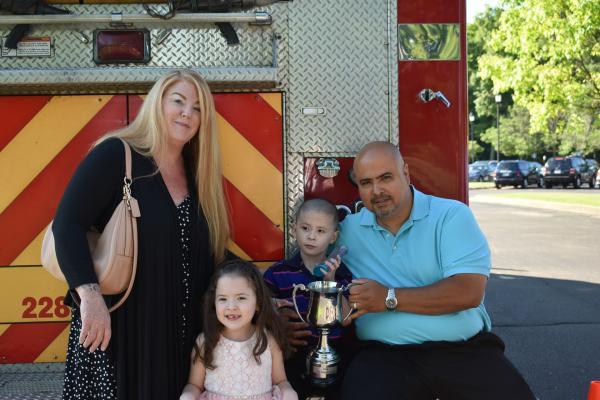Back to school tips for kids with needs
Transitioning from summer fun to the classroom can be rough for any child, but for students with intellectual and behavioral disabilities, it can be especially difficult. Many parents and caregivers probably feel like the kids just got into the groove of summer, and now they have to make another transition.
At Damar Charter Academy, school started Aug. 2, so we’re deep into that transition process. While I see some kids truly struggling, I see others who are progressing nicely, and it reminds me of the factors that can help to ease that transition. So, for those of you who are still working through the rough spots, or those who have yet to begin school, here are a few tips for getting things off to a great start.
- Establish and maintain a routine. Make bedtime and wakeup as uniform as possible … even on weekends. Remember: Consistency helps special needs children cope.
- Create a visual schedule. If getting ready for school presents a daily challenge, consider breaking down the process into small steps and posting photos of individual tasks on a chart or notecards. For example, a photo of a toothbrush will remind your child to tackle that task; a picture of shoes will remind him or her to put on shoes. Arranging the photos in order will help to teach the process and establish that much-needed routine.
- Get to know teachers and classmates. Become familiar with your school and the people in it. Review pictures of the school and, especially, kids from class to help your child “get to know” his or her peers and develop familiarity with his or her environment.
- Associate school with fun. Visit school as often as possible. When your child sees you at school, he or she may be more comfortable. Plus, when you’re at school, you’ll get a better idea of what the day is like for your child and therefore be able to talk about his or her experiences.
- Talk to your child. Often, adults know what’s going to happen, but they forget to give their child critical information. As often as possible, sit down with your child and talk about what he or she can expect – especially on busy or important days or days that will break the routine.
- Plan ahead. Talk about what’s coming next. For example, most schools will be closed on Labor Day, so talk about that. Discuss fall break (for us, that’s Oct. 9-20), and gives kids a heads-up about other important dates.
Of course, if you’re paying attention, you’ll probably notice a key common denominator running through all of those tips: Be involved. Study after study shows that kids are most successful when their parents are engaged in their educations, regardless of any special needs. Add intellectual or behavioral disabilities to a child’s challenges, and parental involvement becomes even more important – especially in times of transition, like the beginning of a new school year.





